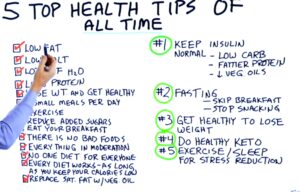
Nutrition plays a vital role in our overall well-being, impacting everything from energy levels and mental clarity to immune function and long-term health. While it can be tempting to follow trendy diets or restrictive eating plans, the key to lasting health lies in balanced nutrition. A well-rounded diet not only fuels your body but also helps you feel and perform at your best every day.
What is Balanced Nutrition?
Balanced nutrition means eating a variety of foods that provide all the essential nutrients your body needs to function properly. This includes carbohydrates, proteins, fats, vitamins, and minerals. Each of these components serves a unique purpose:
- Carbohydrates provide energy for daily activities and brain function.
- Proteins are essential for building and repairing muscles, tissues, and cells.
- Fats support hormone production, brain health, and the absorption of fat-soluble vitamins.
- Vitamins and minerals regulate bodily functions, boost immunity, and promote overall health.
Creating a Balanced Plate
To maintain balanced nutrition, aim to fill your plate with a variety of nutrient-dense foods. Here’s a simple guideline for building a balanced meal:
- Half of your plate should be vegetables and fruits, rich in fiber, vitamins, and antioxidants.
- One-quarter should be lean proteins like chicken, fish, beans, or tofu to support muscle repair and growth.
- The final quarter should consist of whole grains such as brown rice, quinoa, or whole-wheat pasta, providing sustained energy.
- Include healthy fats, such as avocados, olive oil, or nuts, to round out your meal.
The Benefits of Balanced Nutrition
- Improved Energy Levels: When you provide your body with the right fuel, you’ll notice increased energy throughout the day, fewer afternoon slumps, and better concentration.
- Better Digestion: A diet rich in fiber from fruits, vegetables, and whole grains supports healthy digestion and helps prevent issues like bloating and constipation.
- Stronger Immune System: Nutrient-rich foods, especially those high in vitamins and antioxidants, help strengthen your immune system, making it easier to fight off illness.
- Weight Management: Balanced nutrition promotes a healthy weight by providing the nutrients you need without overeating or restricting important food groups.
- Enhanced Mental Clarity: What you eat affects your brain. A balanced diet that includes omega-3s, found in fatty fish, and antioxidants, found in fruits and vegetables, can improve focus, memory, and mood.
Tips for Maintaining a Balanced Diet
- Plan Your Meals: Meal planning ensures that you have nutritious options available and helps you avoid unhealthy convenience foods.
- Practice Portion Control: Eating the right portions can prevent overeating while still ensuring you get the nutrients you need.
- Stay Hydrated: Water is essential for digestion, nutrient absorption, and energy. Make sure to drink plenty of water throughout the day.
- Limit Processed Foods: These are often high in sugar, salt, and unhealthy fats. Focus on whole, natural foods instead.
Conclusion
Balanced nutrition is a cornerstone of a healthy, active lifestyle. By incorporating a variety of nutrient-dense foods into your daily meals, you can fuel your body, support your overall health, and enjoy the benefits of sustained energy and vitality. Start with small, consistent changes to your diet, and soon you’ll feel the positive impact of balanced nutrition on your body and mind. Remember, it’s not about perfection, but about making informed choices that benefit your long-term health.





